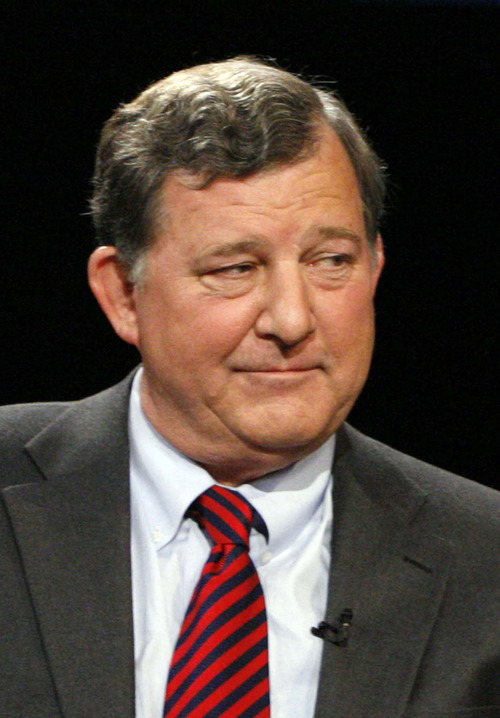This is an archived article that was published on sltrib.com in 2011, and information in the article may be outdated. It is provided only for personal research purposes and may not be reprinted.
If former Rep. Chris Cannon ever runs for federal office again, he would have to pay $45,000 in financial penalties because his campaign violated the law during his failed 2008 re-election bid.
And that's on top of the $137,000 his campaign still owes consultants, pollsters and other vendors.
Those close to the Utah Republican say it's highly unlikely he would jump back into the political fray and as a consequence most of that money will remain unpaid.
Cannon, a six-term congressman, did not return calls Tuesday about the FEC fines racked up because his campaign failed to return $30,400 in general election contributions after he lost in a primary to Jason Chaffetz, who now represents the 3rd Congressional District.
The FEC started its probe in February 2009, after the Cannon campaign missed the 60-day deadline to return the money. It took more than two years to settle the case.
Cannon cut the FEC a $5,000 cashier's check from Zions Bank and agreed to pay an additional $15,000 fine if he ever ran again. He also agreed to either refund the $30,400 in inappropriate donations or pay the U.S. Treasury that amount if his name appeared on a ballot for federal office.
Paul Ryan, with the Campaign Legal Center, said that in all but the most serious cases, the FEC fines campaign accounts and not individuals. He said Cannon's violations are small and common and the fine seems appropriate for a former official with little available campaign cash.
"I think the FEC acknowledges it can't get blood from a stone and in this instance the violator is a political committee and that political committee is now broke," Ryan said.
The FEC stated as much in the conciliation agreement reached in May, which said: "In ordinary circumstances, the commission would seek a substantially higher civil penalty based on the violations outlined in this agreement. However, the commission is taking into account the fact that the committee is defunct, has almost no cash on hand according to the evidence available and has a limited ability to raise additional funds."
Cannon hired Kirk Jowers and Matthew Sanderson of Caplin & Drysdale to handle the probe, the same attorneys he hired in 2005 when the FEC audited his campaign. That audit found only minor paperwork problems.
The former congressman, who is now involved in small business ventures in Utah County, has also faced two lawsuits over outstanding debts from his last campaign. He settled a dispute with Letter 23, an advertising and marketing firm, but he has yet to pay Moore Information, a polling company. State courts have ordered him to pay the company $16,650.
In all, Cannon's campaign owes a little more than $137,000 to outside companies and the former congressman extended personal loans to the campaign of nearly $138,000.
In contrast, former Sen. Bob Bennett, who lost in 2010, left office in relative financial health. He paid off his debts and handed the University of Utah's Hinckley Institute of Politics an $85,000 check this month. Bennett is a U. of U. alumnus who is now a paid adviser to the Hinckley Institute.
Jowers, Cannon's attorney, is also the director of the institute. He said Bennett's contributions went into a special fund reserved for student scholarships and in no way could be funneled back to the former senator.
Twitter: @mattcanham



